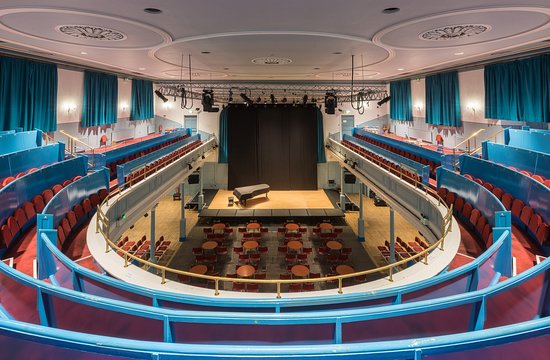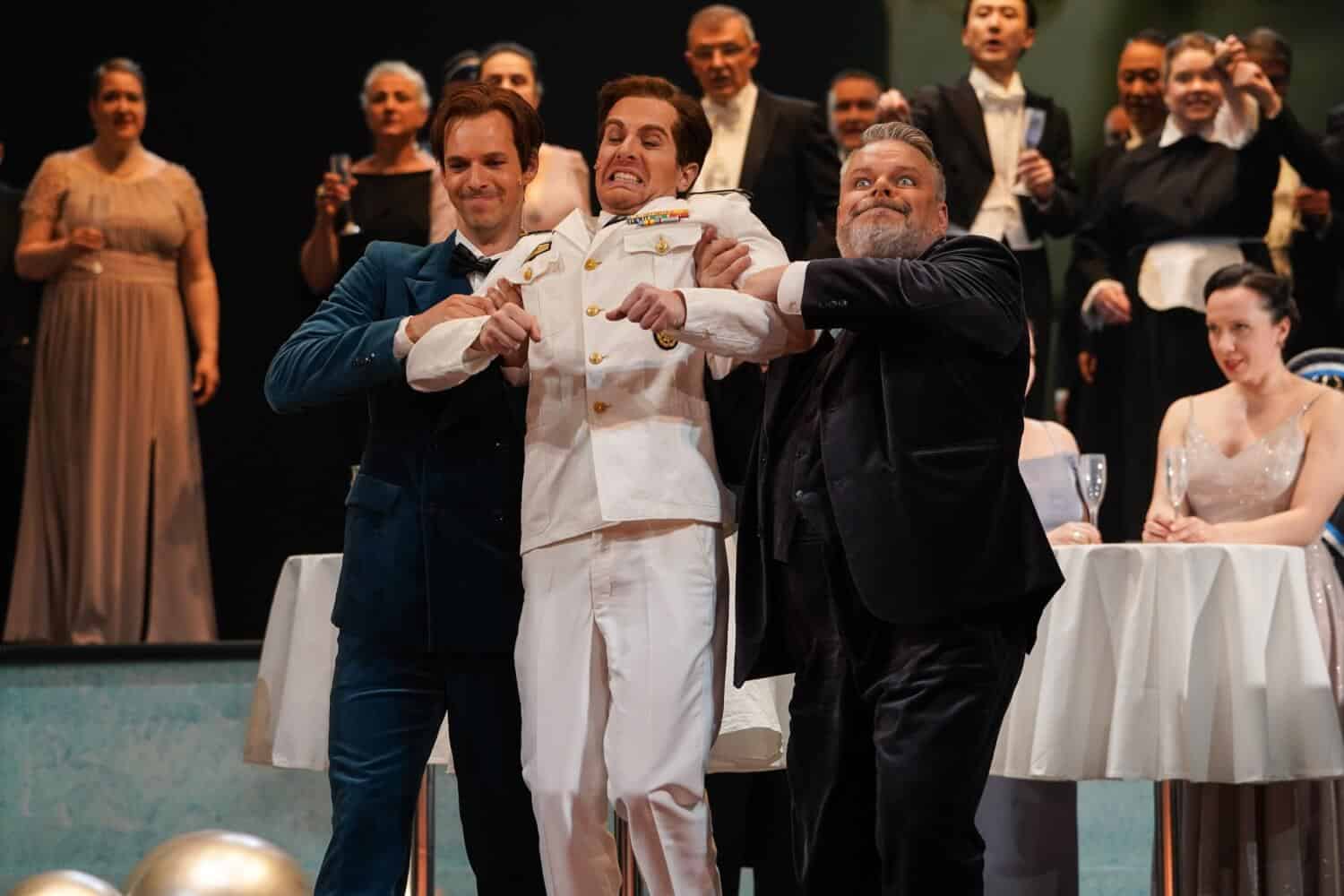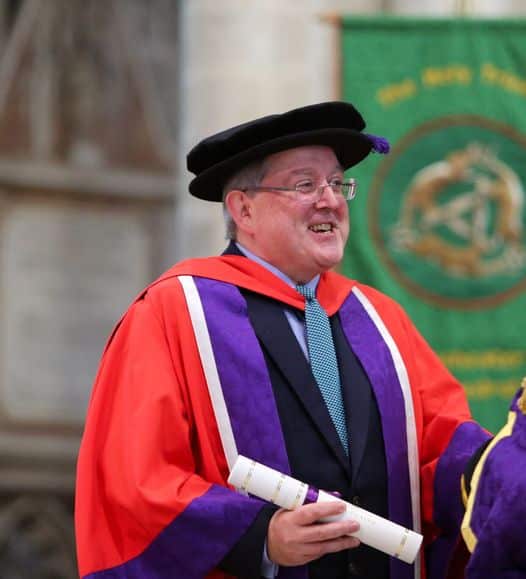Who was this world premiere for?
NewsA Frenchman went to Scotland to premiere a concerto on a Chinese story that became a Japanese TV series.
Did anyone pause to wonder why the audience should turn up?
Review by Hugh Kerr of Edinburgh Music News:
… The new work was a world premiere Oboe Concerto, written for Francois Leleux by his old friend, French composer Laurent Petigirard. It was named ‘Souen Wou K’ong ‘, based on the Chinese novel ‘Journey to the West’ which tells of a Buddhist monk’s travels from China to India with three companions in search of sacred scriptures. This became better known by the Japanese TV series ‘Monkey’, which was very popular in Britain. The work certainly tested the ability of soloist Leloux and he shone in playing a difficult work. His attempts to conduct as well as playing were less convincing. He rightly played towards the audience with a score in front of him, and occasionally turning towards the orchestra and waving his oboe, but the players largely had their eyes on the score. The music itself had some melody it wasn’t totally ‘plinky plonky’ and you could tell it was trying to create the oriental atmosphere of the journey. Leleux certainly was on top of its intricacies, but I have to say I found it underwhelming…. My opinion of the work was confirmed by most of the audience I spoke to at the interval. Unlike some critics I am very interested in what people think of the performance and most were pretty negative. The harpist Eleanor Hudson confirmed that it was a very difficult work for the SCO to play; and they did it very well, but I still found it underwhelming….
Read on here.






But who knows whether the critic was right, or whether the audience was right? Maybe if the new work is played a 2nd time and a 3rd, under better circumstances, for instance with a conductor (!), one could get a better impression. Petitgirard is a very good composer, who did not succomb to the Boulezbian infection of the brain:
https://www.youtube.com/watch?v=TMICgbHVcSg
Under the colourful, very French surface the musical dynamics are traditional, tonal, logical.
I got my bachelor from Juilliard. Four years after graduation I still owe USD 16,000… and I had a very generous scholarship from a private foundation! Looking back I regret attending the school. I have friends who went to study in Germany, Austria or Finland and got an education as good or even better than what I got at Juilliard.
A fair, but rarely applied, test of new music is, “Would you want to hear that again?”
I get that regularly with the answer “Yes”, after which some people rush-in to stop that from happening.
Orchestral musicians always have their eyes on the music. If they look at the conductor they may lose their place. The conductor’s power, if he has natural authority, comes from the musicians’ realization that he is looking at them.
Some conductors apply this from home, getting the players preparing studiously in their own homes before they come to the rehearsels. Often conductors stay at home while the orchestra rehearses, being conducted at distance. Karajan was a master in this, standing motionless in front of the orchestra and with closed eyes. This ESP phenomenon has been studied at the Texas Institute for Technology for years but they don’t understand it at all.
Such a shame that people were not informed of your pre-judgement that the concert would be a waste of time, for there was an audience, even if you thought there should not be. If it were, as reported by Mr. Kerr, disappointing, it would not be the first premiere to be so. I can’t say the work as described appeals to me, but as I haven’t heard it, and nor it seems have you, I’m not in a position to tell the audience in advance that they were going to waste their time. Still, if you’d been alive and pontificating on everything going a little over a century ago, you could have spared Pierre Monteux from a wasted evening. Not the best comparison, surely, but it makes the point. It is at least pleasant to think that we still have any concert performances with audiences at all.
As in the visual arts, there is a wide network of so-called ‘experts’ who decide which new music is ‘relevant’ and which is ‘not’. This is not based upon audience response or players response, but on free-floating ideas which are not grounded in the reality of the concert world. Since everybody is insecure and ignorant, people simply look left and right what others are saying, imitating circulating memes, and carelessly program something that ‘the field’ says is ‘relevant’. The result is that audiences have become indifferent to new music, that new pieces are programmed at the beginning of a program to prevent listeners fleeing the hall, and that new movements which try to restore normality about new music – the situation as it was at the beginning of the 20th century before modernism began to eat away at the organic triangle of music life – are often simply sabotaged. How often is Aho played in life concerts? Or Bacri, or Beffa, or those courageous but non-modernist American composers like Moravec or Leshnoff? But the network wants audiences to get understand that a silly, frustrated punk woman like Olga Neuwirth is a ‘worthy Nachfolger of Mahler’. It is the same system as in the visual arts where an entire fake market is being upheld by ignorant cynics, creating an entirely fake ‘reality’ disconnected from the art form.
The classical music culture consists of three parties which are organically, holistically, connected to each other: composers (dead or alive), performers, and audiences. Removing one of the parties destroys the art form, taking away its relevance and meaning.
I am sorry but I am somehow failing to get the point of this posting or of the original review that generated it. A new composition in its premiere met with a cool reception. Shocking. The composer got his inspiration from untypical sources including a work of literature from China, a work which in adaptations has been popular elsewhere. And that is a reason why it is bewildering that a Scottish audience showed up to hear it?
As to Mr. Hugh Kerr’s review, it is not very comforting when a supposedly professional critic/reviewer needs “helpful” program notes to tell him that Bizet’s very popular L’Arlésienne Suites are taken from incidental music to a play. Kerr writes that he often solicits the opinions of audience members. He should try reading some record jacket notes.
And he is unaware of the deep irony in quoting the negative review Beethoven’s Symphony No. 2 received at its premiere, quoted so he can make fun of how provincial it was, with the negative review he doles out to Laurent Petitgirard’s [and note the spelling of that last name please] new oboe concerto at its premiere. When you’ve just panned a new piece that is not the time to belittle a reviewer who panned a new piece and turned out to be dead wrong.
Indeed, he writes about the music of Petitgirard is entirely unknown to him, which is also not what one expects of a professional critic and reviewer. Petitgirard often takes his inspiration from out of the ordinary sources, so this oboe concerto’s literary sources are hardly out of pattern for him. He is much recorded – and reviewed.
It may well be that this new Petitgirard oboe concerto is as tough a nut to crack as this review by Kerr would have one believe (his violin concerto, brilliantly recorded by Augustin Dumay, also makes for some challenging listening), but it is really bewildering why somehow it is surprising to our host Mr Lebrecht that a composer of this reputation and his music should be presented to a Scottish audience that elected to attend. What part of that combination makes it so odd?
China, with one fifth of the world’s population, hardly needed a Japanese television series to know “Journey to the West.”
I was at the concert. The new music seemed to be well received if not as enthusiastically as some new pieces. Since it was at times rather contemplative perhaps it was not surprising. As the SCO frequently programmes and commissions modern pieces this is an audience that hears such music regularly. The people I talked with enjoyed the experience.